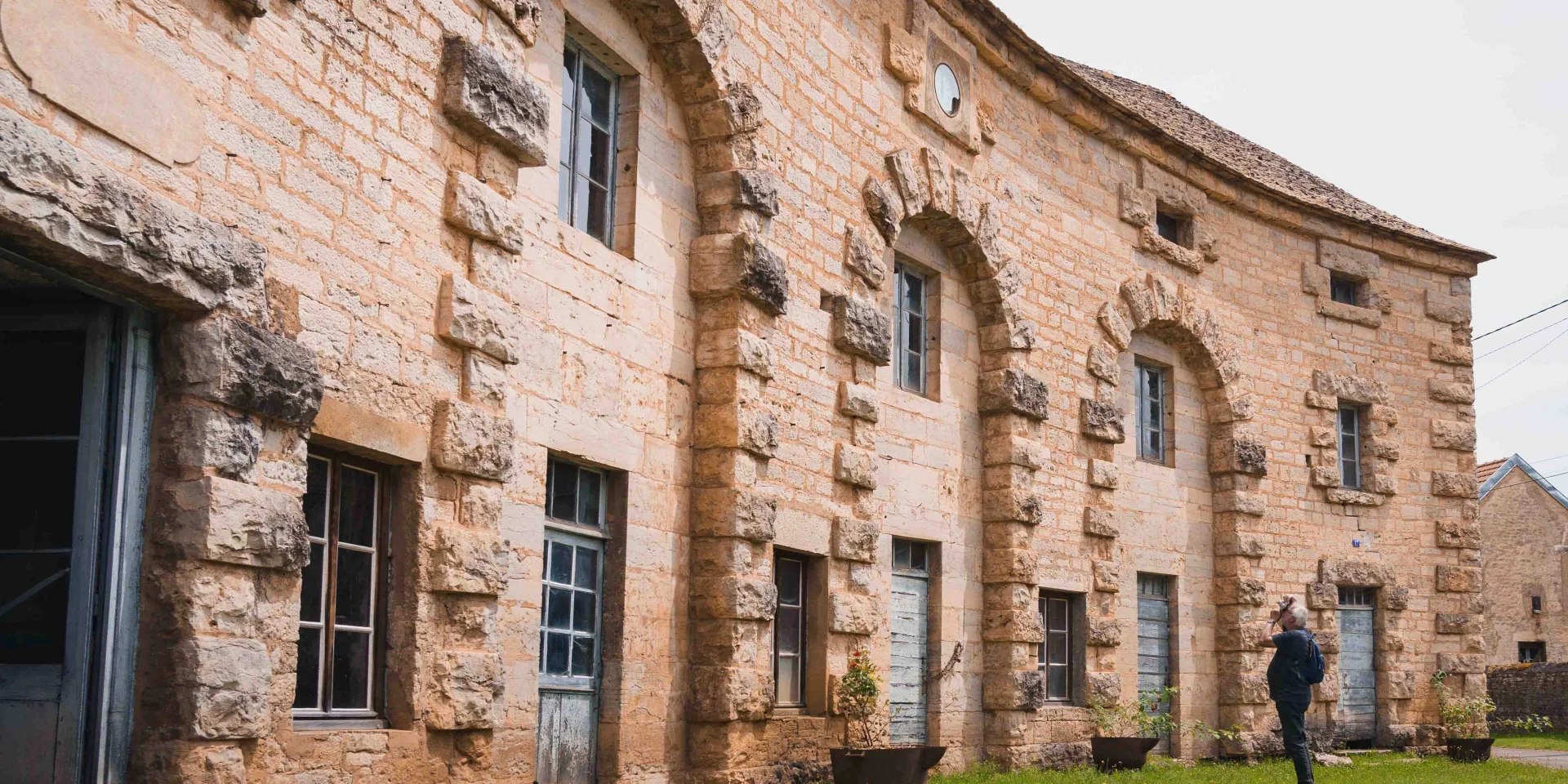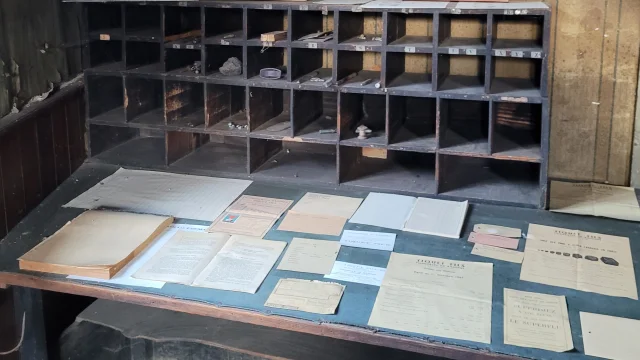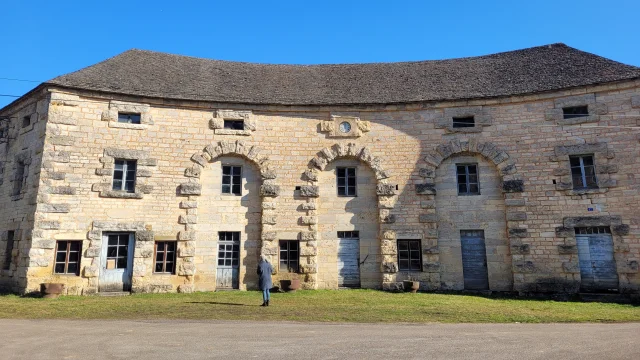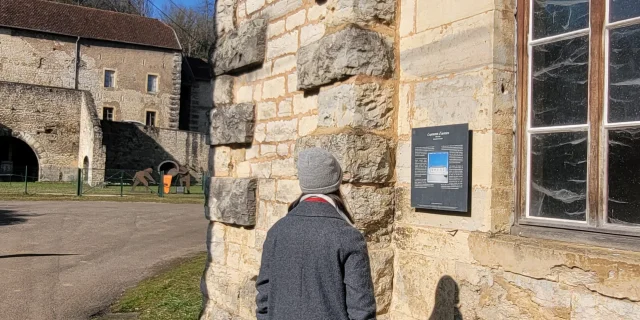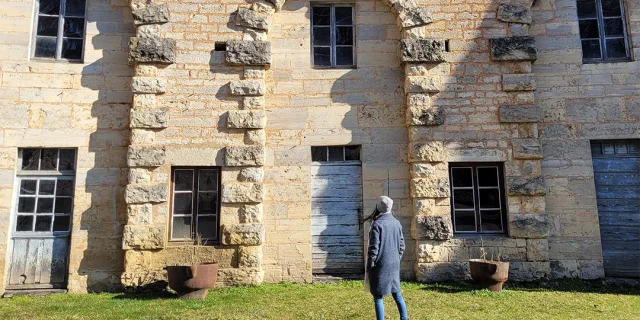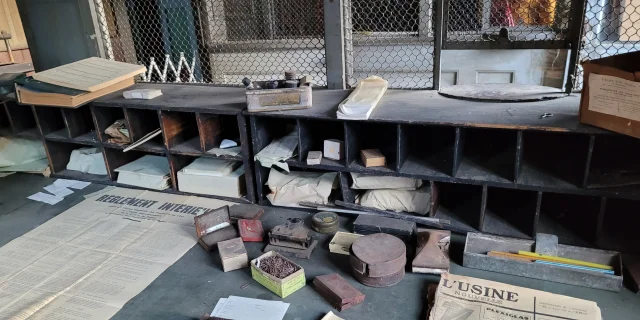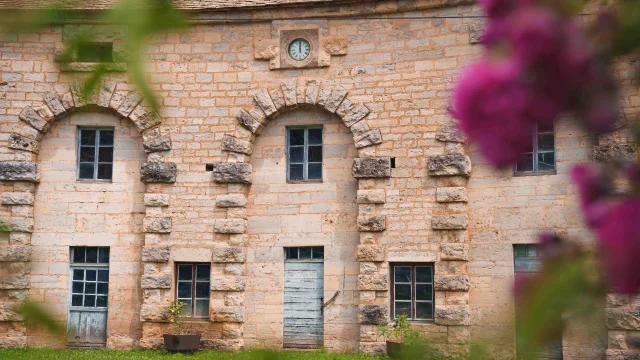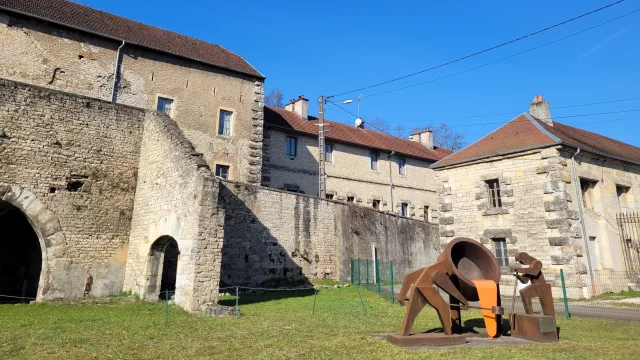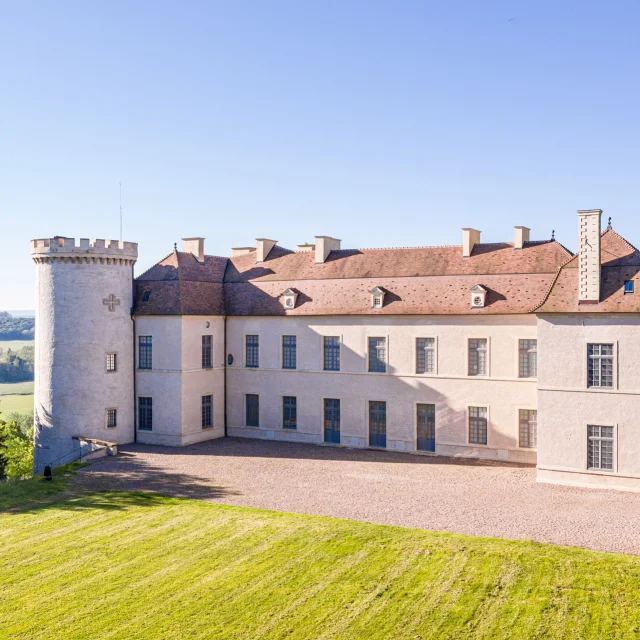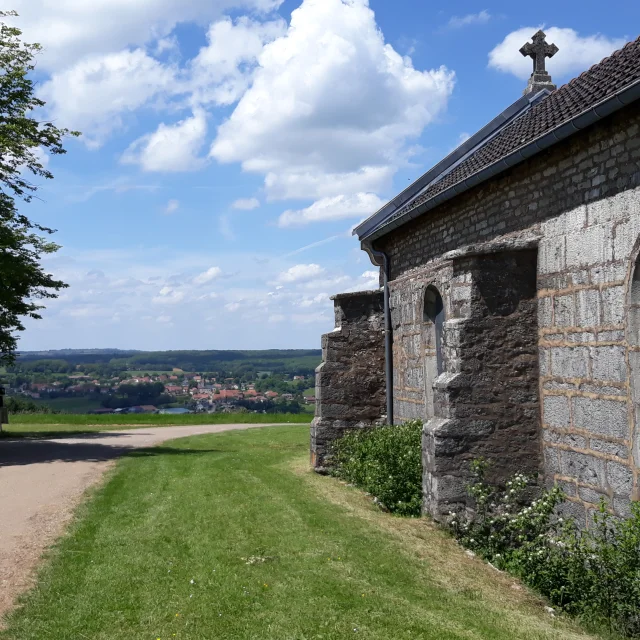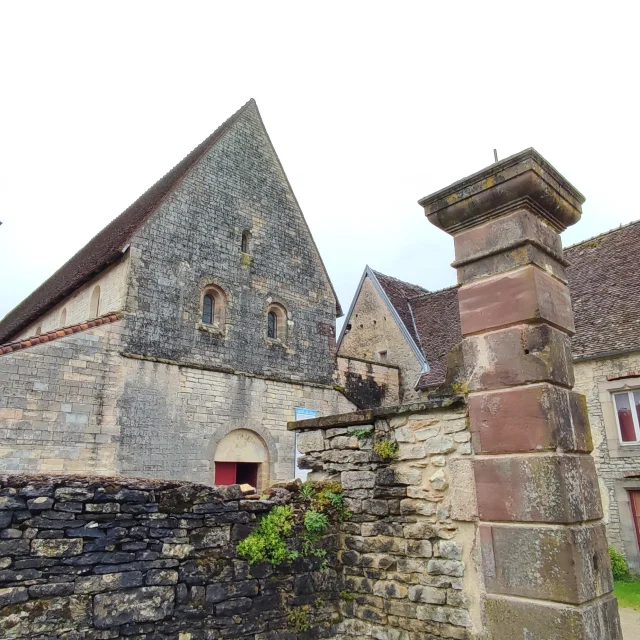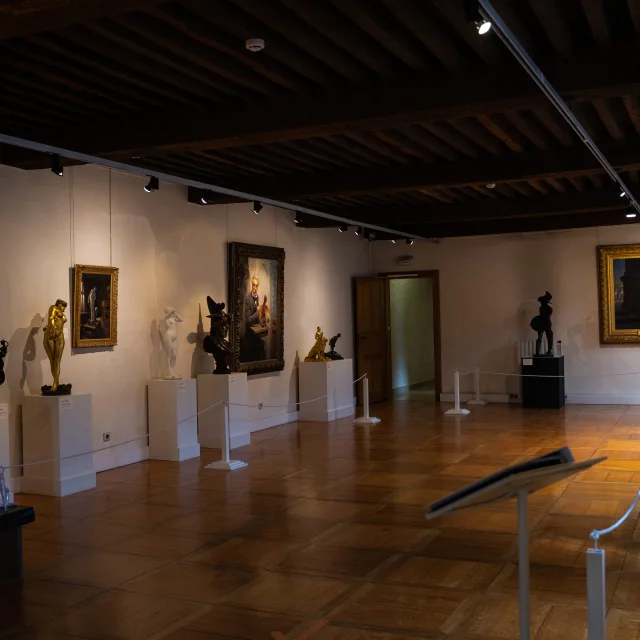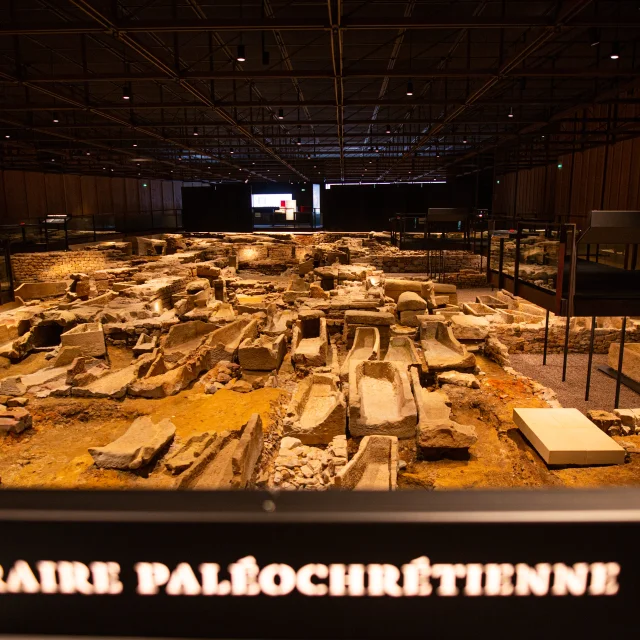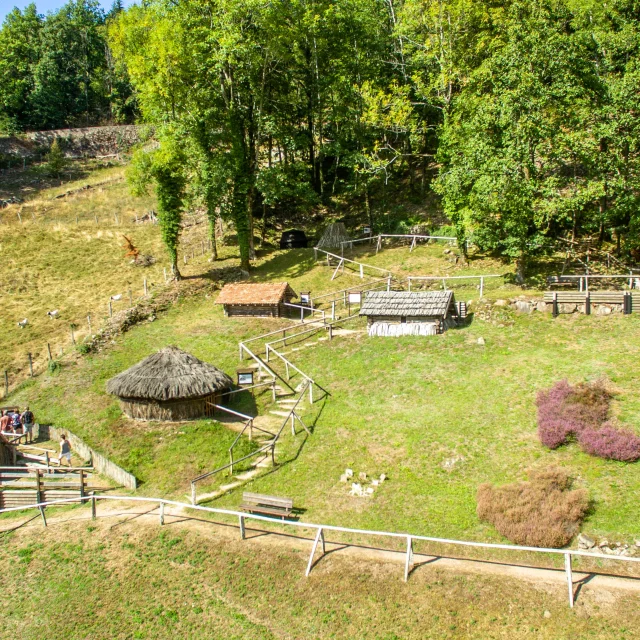This 18th-century site illustrates the heyday of the local metallurgical industry, benefiting from an ideal location thanks to the proximity of iron ore deposits, the presence of the Baignotte spring and an artificial pond.
The blast furnace and forge at the entrance to the village of Baignes produced a wide range of products, including merchant cast iron, such as cannonballs, and merchant iron for local factories and Mediterranean arsenals. In 1789, the factory employed 123 workers, not counting casual labourers.
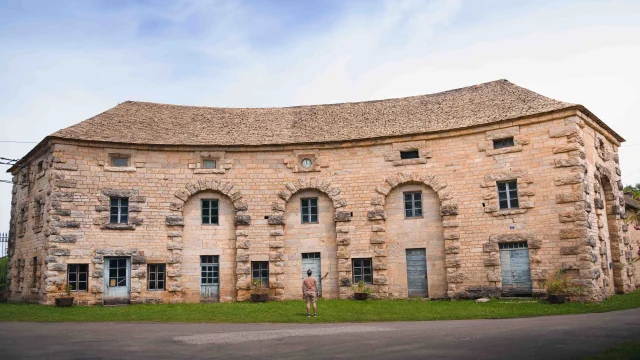 A man in front of the Forges de Baignes - Vesoul - Val de Saône
A man in front of the Forges de Baignes - Vesoul - Val de SaôneOver time, the Baignes industry faced a number of challenges, including the depletion of iron ore resources, excessive deforestation and competition from the steam engine and the use of coke. Despite these obstacles, the forge was able to adapt, but was nevertheless forced to cease its main activity in 1850.
Under the impetus of Forge Master Pierre Tiquet, the forge was then converted to the production of moulded objects for domestic use, meeting the needs of a more local market: stoves, washing machines, irons, waffle irons, cooking pots, etc.
However, with the advent of new production techniques, the factory closed its doors for good in the early 1960s.
